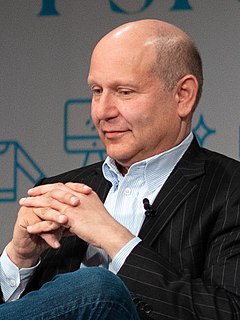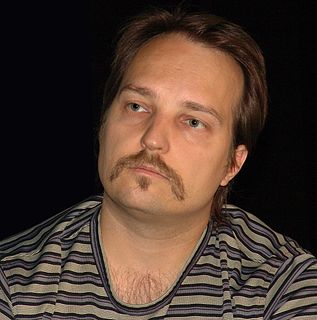A Quote by Todd Haynes
I find movies rely upon dialogue too much sometimes, and you lose the power of what really the most basic cinematic language is, which is the visual language.
Related Quotes
It took a pretty drastic moment to shift my thinking towards visual arts. I got to a moment in my writing career when I wasn't trusting the language, I was really not trusting the written language, the English language. How do you work with a material that you don't have trust in? I had to step away from it and find another way of articulating and I had to do it without words.
Basic would never have surfaced because there was always a language better than Basic for that purpose. That language was Joss, which predated Basic and was beautiful. But Basic happened to be on a GE timesharing system that was done by Dartmouth, and when GE decided to franchise that, it started spreading Basic around just because it was there, not because it had any intrinsic merits whatsoever.
The whole compass of the language is tried to find sinonimies [synonyms] and circumlocutions for massacres and murder. Things never called by their common names. Massacre is sometimes called agitation, sometimes effervescence, sometimes excess sometimes too continued an exercise of revolutionary power.
The problem with natural language processing and the thing that really holds the technology back, is that when it crashes and burns, it's horrific. I think we would be in a position to really take a serious look at it, once two things happen. The interesting thing about a dialogue-choice system is that we've devoted so much into all kinds of other systems for processing, and dialogue choices use zero processing. So suddenly, if you want to have a great natural language processor, you need to dial down your graphics to make it work.
When I go to the cinema, I want to have a cinematic experience. Some people ignore the sound and you end up seeing something you might see on television and it doesn't explore the form. Sound is the other picture. When you show people a rough cut without the sound mix they are often really surprised. Sound creates a completely new world. With dialogue, people say a lot of things they don't mean. I like dialogue when it's used in a way when the body language says the complete opposite. But I love great dialogue I think expositional dialogue is quite crass and not like real life.
It has not been definitively proved that the language of words is the best possible language. And it seems that on the stage, which is above all a space to fill and a place where something happens, the language of words may have to give way before a language of signs whose objective aspect is the one that has the most immediate impact upon us.
The whole visual language of the movie is developed way before we get to set. Especially when you're doing visual effects and you don't have a lot of money to mess around, which we didn't, you have to really preplan everything. Pretty much every shot in the film was figured out months before we got to set.
I'm a big fan of fiction film where you have a story and you have to transform that into a visual language, basically working with actors and also transforming that into how you pronounce that in the visual language of the shots, the construction of the shots and the lighting. All of that appealed to me from the beginning of my career at the university. When I graduated from the university, I wanted to deal mainly with that, with the visual aspect of the movie.






































